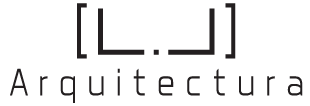- Fresh Perspectives & Current Affairs Delivering Vital Updates
- The Evolution of Information Dissemination
- The Role of Social Media
- Challenges to Journalistic Integrity
- The Importance of Media Literacy
- Developing Critical Thinking Skills
- Navigating the Digital Landscape
- The Future of Information
Fresh Perspectives & Current Affairs Delivering Vital Updates
In today’s rapidly evolving world, staying informed about current events is more critical than ever. The constant flow of information, however, can be overwhelming, leading to a need for reliable and insightful sources. Access to timely and accurate updates shapes public opinion, influences decision-making, and allows individuals to participate fully in civic life. Understanding the complexities of global issues requires a commitment to fact-checking and a diverse range of perspectives. The dissemination of information, particularly through digital platforms, has fundamentally changed how we consume news and interact with the world around us.
This article explores the current landscape of information delivery, examining the challenges and opportunities presented by modern media. We’ll delve into the nuances of responsible reporting, the impact of social media, and the importance of media literacy in navigating today’s complex information ecosystem, while emphasizing the significance of objective and reasoned analysis.
The Evolution of Information Dissemination
The methods by which information reaches the public have undergone a dramatic transformation over the past few decades. Traditionally, news was primarily disseminated through print newspapers, radio broadcasts, and television news programs. These sources, while influential, had limitations in terms of speed and reach. Today, the internet and social media platforms have revolutionized information dissemination, enabling instant access to a vast amount of content from sources around the globe. This shift has democratized information access but has also created a breeding ground for misinformation and “fake news”, where verification can often be challenging.
| Limited Reach | Global Reach |
| Slower Dissemination | Instantaneous Dissemination |
| Gatekeepers: Editors, Journalists | Decentralized: Anyone can publish |
| Higher Editorial Control | Variable Editorial Control |
The Role of Social Media
Social media platforms have become a primary source of information for many people, especially younger generations. These platforms offer a unique opportunity for individuals to share news and perspectives with a wide audience. However, social media also presents significant challenges, including the spread of misinformation, echo chambers, and the erosion of trust in traditional media. Algorithms designed to maximize engagement can inadvertently prioritize sensational or misleading content, further exacerbating these issues. The fast-paced nature of social media often encourages impulsive sharing without adequate fact-checking, contributing to the rapid viral spread of inaccurate information.
The velocity and spread of information on social media can be a double-edged sword. While it allows for rapid response to events, it also limits time for careful consideration or contextualization. The echo chamber effect, where users are primarily exposed to information confirming existing biases, is a particularly concerning phenomenon. Understanding these dynamics is crucial for navigating the complexities of the digital age and discerning between credible sources and misinformation.
Challenges to Journalistic Integrity
The economic pressures facing the media industry have also impacted journalistic integrity. The decline in advertising revenue has led to cutbacks in newsrooms and a reduction in investigative reporting. This decline has resulted in a decreased ability to independently verify information and hold powerful institutions accountable, increasing the risk of biased or inaccurate reporting. The rise of clickbait journalism, driven by the need for online traffic, further compromises journalistic ethics. Advertisers are sometimes complicit, creating a system where sensational headlines are prioritized over factual and detailed reporting.
Maintaining journalistic integrity requires a commitment to accuracy, fairness, and independence. Independent fact-checking organizations and media literacy initiatives play a vital role in combating misinformation and promoting informed public discourse. Supporting quality journalism, through subscriptions or donations, is a significant means to counter growing commercial pressures. Promoting transparency regarding media ownership and funding sources is also essential in ensuring public trust.
The Importance of Media Literacy
In an age of information overload, media literacy has become an essential skill for all citizens. Media literacy encompasses the ability to critically evaluate information, identify biases, and discern credible sources from unreliable ones. It also involves understanding the economic and political forces that shape media coverage. Promoting media literacy in schools and communities is crucial for empowering individuals to make informed decisions and engage effectively in democratic processes. It’s not simply about dismissing information you disagree with, but understanding why you agree or disagree, what evidence supports claims, and what motivations might be behind the presentation of data.
- Fact-Checking Skills: Learning to verify information from multiple sources.
- Source Evaluation: Assessing the credibility and objectivity of news organizations.
- Bias Detection: Recognizing potential biases in media coverage.
- Understanding Algorithms: How algorithms influence the information you see.
Developing Critical Thinking Skills
Critical thinking is a core component of media literacy and essential for navigating the information age. It involves analyzing information objectively, identifying assumptions, and evaluating evidence. Cultivating critical thinking skills requires a willingness to question information, challenge one’s own biases, and consider alternative perspectives. Encouraging debate, discussion, and diverse viewpoints are all aspects of teaching critical thought. Engaging with content from different schools of thought is essential for forming a well-rounded understanding of pressing issues.
Furthermore, recognizing the difference between opinion and fact is often a critical step in the process. A statement of opinion, regardless of confidence, requires evidence to support it and is debatable by nature. A statement of fact, while potentially requiring context, can be demonstrably proven true or false. Mastering this distinction can empower individuals to avoid manipulation and misinformation.
Navigating the Digital Landscape
The digital age has created new opportunities for accessing information but also new challenges for maintaining an informed citizenry. A constant barrage of information, combined with the proliferation of misinformation, can be overwhelming. Recognizing this, it is important to cultivate mindful consumption habits. This includes limiting exposure to sensationalized or emotionally charged content, prioritizing reliable sources, and actively seeking out diverse perspectives. The ability to multitask is often overvalued; dedicating focused attention to a single high-quality source is often far more beneficial than passively scrolling through numerous feeds.
- Diversify Sources: Avoid relying on a single source of news.
- Verify Information: Cross-reference information from multiple sources.
- Be Skeptical: Question sensational headlines and emotionally charged content.
- Support Quality Journalism: Subscribe to reputable news organizations.
The Future of Information
The future of information is likely to be shaped by emerging technologies such as artificial intelligence (AI) and virtual reality (VR). AI has the potential to automate fact-checking and personalize news delivery, but it also raises concerns about algorithmic bias and the creation of deepfakes. VR can create immersive and engaging news experiences, but it also raises questions about objectivity and manipulation. Navigating these developments will require ongoing dialogue about the ethical implications of these technologies. Regulating AI’s role in the news ecosystem will be a challenge, balancing innovation with the need for accuracy and accountability.
The need for informed citizens remains paramount. Investing in media literacy education, supporting independent journalism, and promoting a culture of critical thinking will be essential for ensuring a well-informed public and a healthy democracy moving forward. The ongoing evolution of the media landscape demands constant vigilance and adaptation from both consumers and producers of information.

